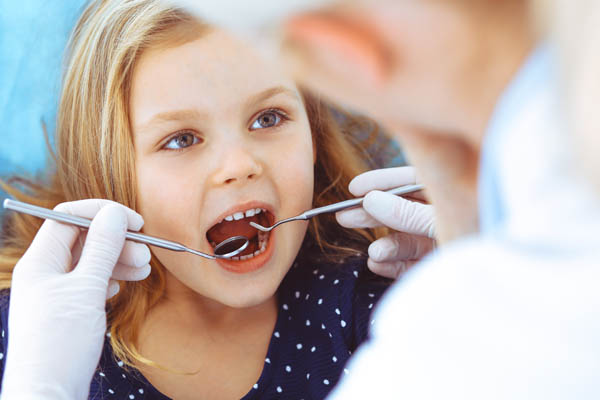6 Baby Dental Crown FAQs

Baby dental crown placement is a common treatment performed in pediatric dentistry. While the word "baby" does imply that they are used for infants, these crowns are actually used for baby or primary teeth, whether in a toddler or child who is anywhere from the ages of four to 10 years old.
6 Common baby dental crown questions
Outlined below are a few frequently asked questions and answers regarding baby dental crowns. Parents that have been told their child needs a baby dental crown can review this information to get a better idea of what to expect.
1. What is a baby dental crown?
A baby dental crown is a small cap that is used for baby teeth. It functions the same way a traditional dental crown does, however, it is smaller and less durable, as it is not meant to last forever.
2. When are baby dental crowns needed?
A baby dental crown is typically needed when a child has a cavity or abnormality that poses a risk to oral health. In most cases, cavities can be remedied with a dental filling, however, if it is more severe, a baby dental crown may be required. In the case that an accident occurs, a chipped or cracked tooth may be the result, which may also require a pediatric dentist to place a baby dental crown.
3. Are baby dental crowns safe?
Yes. Baby dental crowns may sound intimidating, but parents can rest assured knowing that the baby is safe in the pediatric dentist's hands. Baby dental crowns are actually necessary in order to keep the natural tooth safe until it falls out to be replaced by the adult tooth.
4. What is a baby dental crown made of?
Baby dental crowns are typically made of metal or porcelain, however, most pediatric dentists have converted to porcelain as they are more customized. Metal crowns are more affordable, but porcelain looks more natural (which may not be a concern for baby teeth as they will fall out eventually).
5. Will a baby dental crown placement hurt the child?
No, but there may be some discomfort. Baby dental crowns are similar to adult ones, however, they are geared toward baby teeth. With that being said, it is important to understand that the procedure can be uncomfortable as decayed or damaged parts of the tooth do have to be removed in the process. However, pediatric dentists work to combat any discomfort with a numbing agent and laughing gas. After the baby dental crown has been placed, the child may feel some slight soreness or sensitivity, which can be remedied with an over-the-counter children's pain reliever.
6. Are there any alternatives to baby dental crowns?
Most pediatric dentists only recommend a baby dental crown when absolutely necessary. While parents may be hesitant about the procedure, it is almost always necessary in order to address the problem at hand.
Consult with a pediatric dentist
Parents that still have questions about baby dental crowns can reach out directly to a pediatric dentist. The pediatric dentist can address these questions and go over any other concerns. To find out more or to get scheduled for an appointment, contact us today.
Request an appointment here: https://www.breapediatricdentists.com or call Brea Pediatric Dental Practice and Orthodontics at (714) 782-0215 for an appointment in our Brea office.
Check out what others are saying about our dental services on Yelp: Dental Crowns and Dental Bridges in Brea, CA.
Related Posts
Routine visits to a dentist for kids lay the foundation for a lifetime of healthy smiles. Pediatric dental care is carefully structured to meet the developmental needs of children, offering a combination of preventive and restorative services that grow with them. With tailored guidance and techniques, a dentist for kids can preserve oral health and…
Sedation dentistry offers a safe and effective solution for children who experience anxiety, fear, or difficulty remaining still during dental procedures. By creating a calm and stress-free environment, sedation dentistry allows pediatric dentists to complete necessary treatments while ensuring children remain comfortable. Understanding the types, benefits, and safety measures can help parents make informed decisions…
Although receiving orthodontic treatment is not exactly exciting, you can make braces for kids fun. Braces are significantly less noticeable than they were in the past, and some are nearly undetectable. The latest braces are also more comfortable and dependable, allowing kids to focus on the things that matter. Today’s braces provide a wider range…
A key goal of pediatric dentistry is establishing healthy oral hygiene habits early to promote long-term oral health. With guidance from a pediatric dentist, parents can help their children understand how to maintain clean and healthy teeth at home. This early exposure can make healthy habits — like brushing twice daily, flossing daily, and eating…
